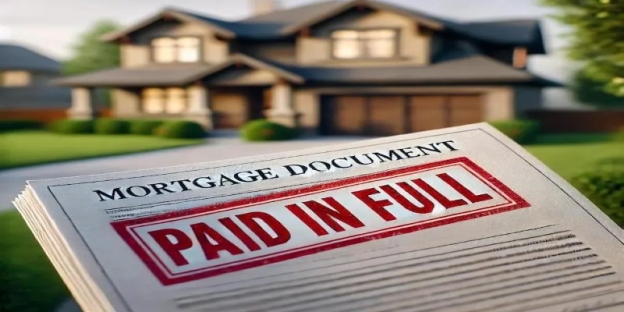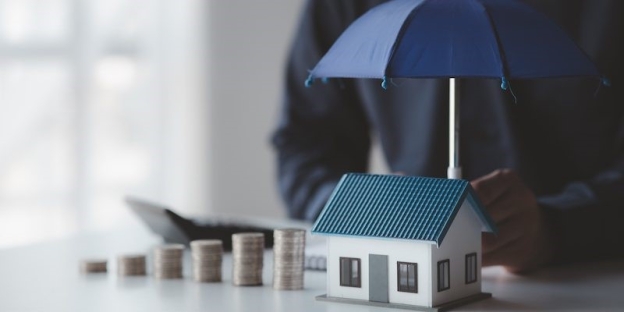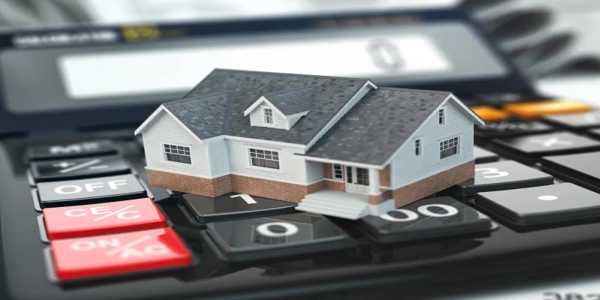Paid Off Your House? Here's Why Insurance Still Helps
Have you finally paid off your mortgage and now own your home outright? It's a significant achievement—and one that often brings questions about what expenses are still necessary. One of the most common is: Do I still need home insurance if the bank isn't requiring it anymore? It's a fair question. After all, with no lender involved, the decision is entirely yours.
Let’s break this down. Just because no one is forcing you to carry a policy doesn’t mean you should drop it. There’s more to consider than whether insurance is required. Here’s a closer look at what happens when you own your home outright and what role insurance still plays in protecting what you’ve built.
Do You Legally Need Home Insurance Without A Mortgage?
No, there is no law requiring you to have home insurance if your house is fully paid off. Once your mortgage is settled, lenders can no longer require you to maintain coverage. The decision to continue with a policy is entirely yours. That said, this isn't just about checking boxes on legal requirements. This is about weighing the risks.

Owning a home outright might make you feel secure, but that doesn't make your property immune to fire, storms, theft, or accidents. Without insurance, you're responsible for the full cost of repair or replacement. Can you afford to rebuild your home from the ground up if it were to burn down? Or replace everything after a major break-in? For many people, the answer is no. And that's where home insurance still plays a significant role.
What Does Home Insurance Cover?
Let’s go over what you’re choosing to walk away from if you cancel your policy. A standard home insurance policy typically includes:
Dwelling Coverage
Pays for repair or rebuilding costs if covered events, such as fire, wind, or hail damage, occur to your home.
Personal Property Coverage
Covers items such as electronics, furniture, and clothing if they're stolen or destroyed.
Liability Protection
Offers legal and medical protection if someone gets injured on your property.
Additional Living Expenses (ALE)
Pays for hotel stays or meals if your home becomes uninhabitable after a covered loss.
All of this becomes your financial responsibility without insurance. It’s a risk that many find hard to justify, even when they’re free from mortgage obligations.
What Could Happen If You Go Without It?
Imagine this: A tree falls on your roof during a windstorm. There's no insurance company to call. You're looking at tens of thousands in repair bills. Or someone slips on your icy sidewalk, breaks their leg, and decides to sue. You're responsible for covering court costs, legal defence, and medical bills.
There’s no refund for the years you’ve been claim-free, but the value of having a policy becomes clear when you need it. Insurance isn't an investment that grows—it's a safety net when the unexpected happens.
When Might It Make Sense To Cancel Home Insurance?
There are a few rare cases where dropping your policy might seem reasonable. If you live in a very low-risk area and have the savings to absorb any potential loss, you could take that risk. Some homeowners with substantial financial resources and minimal concern about asset loss may feel confident about self-insuring. But even then, many still keep at least liability coverage, just in case.
A minimalist cabin in a remote area with no valuables inside might be a different story from a primary residence filled with personal belongings, appliances, and daily comforts of life. For most people, the cost of a basic policy is far less than the potential cost of being uninsured.
How Much Does Home Insurance Cost Without A Mortgage?
The good news is that once your mortgage is paid off, you can shop around more freely. You’re not tied to your lender’s requirements or minimum coverage levels. That gives you more control over what you pay.
You can choose a higher deductible to lower premiums, drop specific riders you no longer need, or even reduce the policy value slightly if the replacement cost of your home has changed. Home insurance costs vary depending on your home's size, location, condition, and value; however, the nationwide average is approximately $1,400 per year.
Some providers offer discounts if your home has security systems, storm shutters, or a new roof. It’s worth comparing rates every few years to make sure you’re not overpaying.
Can You Keep Liability Coverage?
Yes, and many homeowners without a mortgage do precisely the same thing. If you feel confident your home is unlikely to be damaged—or that you could afford to fix it—you might still want to keep liability coverage active.

Liability claims can run into six figures. A simple dog bite, a fall on your property, or an accident involving your tree that damages a neighbour's car can lead to lawsuits. Without liability coverage, these costs could come directly out of your savings, or worse, force the sale of your home or assets.
Maintaining a pared-down policy that focuses on liability and personal injury coverage is one way to protect while trimming costs.
What About Property Taxes And Other Expenses?
Even without a mortgage, owning a home comes with ongoing costs. Property taxes, maintenance, utilities, and possibly HOA fees don’t go away just because you’ve paid off your loan. Insurance is one part of that picture.
While insurance won't prevent those regular bills, it can keep an unexpected disaster from becoming a financial collapse. For instance, a kitchen fire or a basement flood can quickly deplete emergency savings. Without coverage, you're left to figure it out on your own.
Final Take: Is Dropping Home Insurance Worth The Risk?
Owning your home outright gives you freedom. But freedom doesn't mean immunity from bad luck, natural disasters, or accidents. Home insurance becomes optional, yes, but it still serves a vital role in protecting your home and finances.
If you can afford to replace your home, belongings, and cover legal costs out of pocket, then dropping your policy might be a calculated risk. But for most homeowners, continuing some level of insurance—even if reduced—remains the more intelligent choice. After years of paying off a mortgage, protecting that investment usually costs far less than replacing it.







